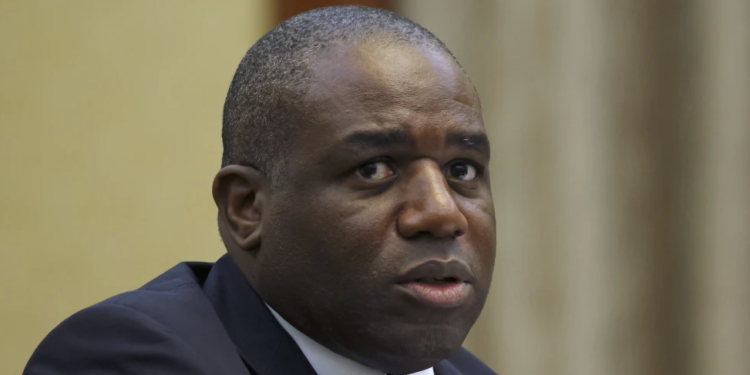Nov 4, 2024 Story by: Editor
LAGOS, Nigeria (AP) — Britain’s Foreign Secretary emphasized on Monday that reparations for the U.K.’s involvement in the slave trade do not equate to “the transfer of cash,” reinforcing the country’s stance on focusing on future relationships rather than reparative payments.
In recent times, Britain has faced calls from former colonies to confront its role in the transatlantic slave trade. At the 27th Commonwealth Heads of Government Meeting, leaders advocated for a “meaningful, respectful and truthful” dialogue about reparatory justice.
During a visit to Nigeria, British Foreign Secretary David Lammy, who himself is a descendant of enslaved people through his Guyanese heritage, acknowledged the brutal legacy of slavery, describing it as “horrendous” and noting the enduring “scars” it left behind. However, he stressed the importance of forward-looking discussions, saying, “It’s not about the transfer of cash, particularly at a time of a cost-of-living crisis around much of the globe, and certainly in the U.K.”
Lammy elaborated that Britain is working towards building “respectful partnerships that listen rather than tell, deliver long-term growth rather than short-term solutions, and build a freer, safer, more prosperous continent” in its relations with African nations.
While a few countries, such as the Netherlands, have issued formal apologies for their roles in slavery, the U.K. has yet to do so, despite the economic benefits it historically reaped from the transatlantic slave trade.
At the Commonwealth summit, King Charles III indirectly addressed the calls for reparations. He noted that while history cannot be altered, leaders should seek to find “the right language” and a shared understanding of the past “to guide us towards making the right choices in the future where inequality exists.” Source: AP News

















